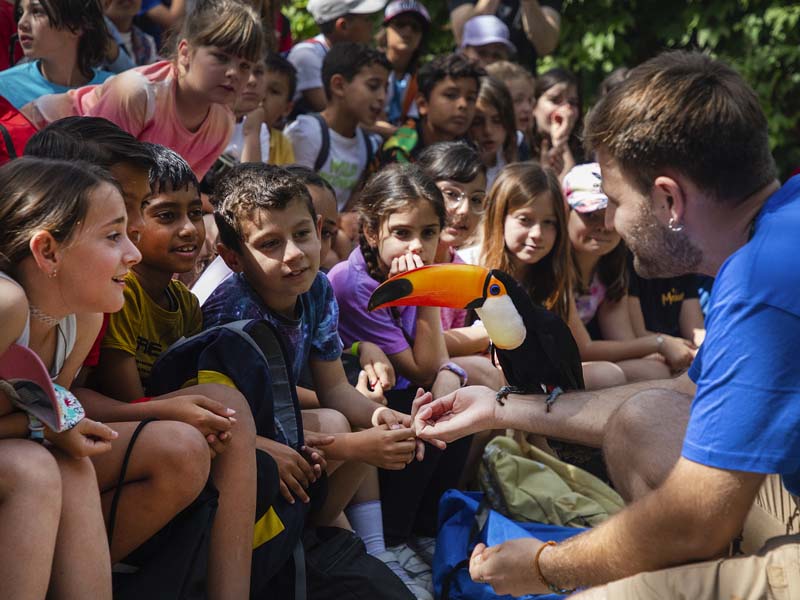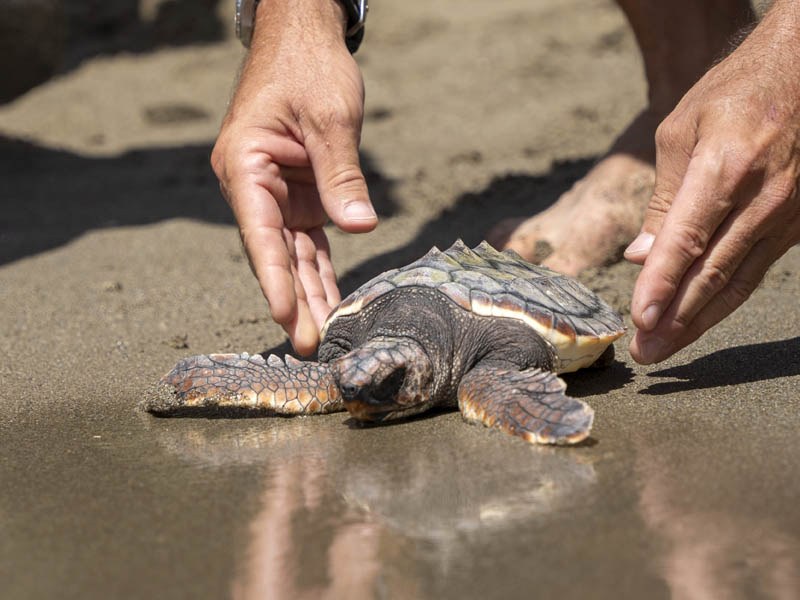If you come in costume, you get free admission! Get it here.
Selwo Marina has three fundamental pillars that are the basis of our foundations: the conservation of endangered species, environmental education for visitors, especially the new generations, and scientific research on the species we host.
Through immersive and educational experiences, we promote the conservation of the oceans and biodiversity, fostering respect for our environment. Our goal is to be a benchmark in environmental education through our didactic vision, connecting the community with the beauty of marine ecosystems, and raising awareness among the visitors that change is in everyone's hands, since the ocean is our legacy and taking care of it is our responsibility.
How do we achieve this?
In our commitment to inspire current and future generations to value and protect marine life, we are governed by the bases and guidelines established by the European Association of Zoos and Aquariums (EAZA) and the Iberian Association of Zoos and Aquariums (AIZA).

In addition to participating in various ex-situ breeding programs for endangered species (EEP, European Endangered Species Program, and ESB, European StudBook) and actively participating in research projects in collaboration with other institutions as zoos, universities or museums, Selwo Marina is part of the Parques Reunidos Foundation, which works on various projects to protect biodiversity and the most vulnerable ecosystems, even before the conservation role of zoos in Spain was regulated by law.
Under the careful care of a large team of veterinary experts, biologists and keepers, all species housed in Selwo Marina receive the highest standards of animal welfare and live in habitats specifically designed to meet their needs. For each species, each animal is cared for according to its needs, according to its role in the social group in Selwo Marina and within the international conservation programs, receiving controlled, personalized and balanced diets. In addition, for us it is a priority to communicate to all our visitors the conservation work we carry out, through talks, activities and experiences in which they can be involved in the current problems of the species and their habitats and learn what they can do every day to take care of the environment.
